Updated 09 Dec 2025
Growing your own vegetables is healthy, sustainable and hugely rewarding. However, if you’ve never done much gardening before, starting your own veggie garden can be daunting. There are so many questions that need answering!
“What veggies should I grow and when? How much land do I need? What about the soil, sun and water requirements?”
It’s easy to get overwhelmed with the learning curve ahead! Therefore, when starting a veggie garden for the first time it’s best to focus on growing vegetables that are notoriously easy to grow, that require little maintenance, can be harvested quickly and aren’t so susceptible to pests and diseases.
Starting with common veggies is the best way to develop your skills as a veggie gardener and still end up with some great produce.
If you’re a novice gardener, you might be overwhelmed at all of the things you need to learn. But it doesn’t have to be so frustrating. When you’re first starting out pick just three or four and build your way up to more varieties as you get more comfortable in the garden.
What do you need to start a garden?
Firstly you need space in your garden to grow vegetables in. Clear a space in your garden which is sunny yet sheltered. You don’t need a large plot of land or heavy equipment to start a basic veggie garden. The following equipment is enough to start your first veggie garden:
• Seeds or seedlings
• A small plot of soil
• Shovels
• Rake and spade
• Gloves
• Watering can or hose
If you have a lot of waste to remove after clearing space in your garden, head over to ezy peazy to find a waste removal specialist near you!
Continue reading to learn our pick of the 12 easiest vegetables for you to grow as a beginner.
1. Leafy Greens
Leafy greens, including spinach, lettuce and silverbeet are the perfect crop for every veggie garden, especially for the summer months. Leafy greens grow well in the full sun during spring and fall, provide them with shade and they will continue to grow throughout summer.
Greens grow quickly with minimal attention and are easy to harvest (just chop the leaves off the plant) to quickly throw fresh into a meal. Greens also take up very little space. Lightly water your greens every day (depending on your climate) and you will be well on your way to having a garden filled with nutritious greens.
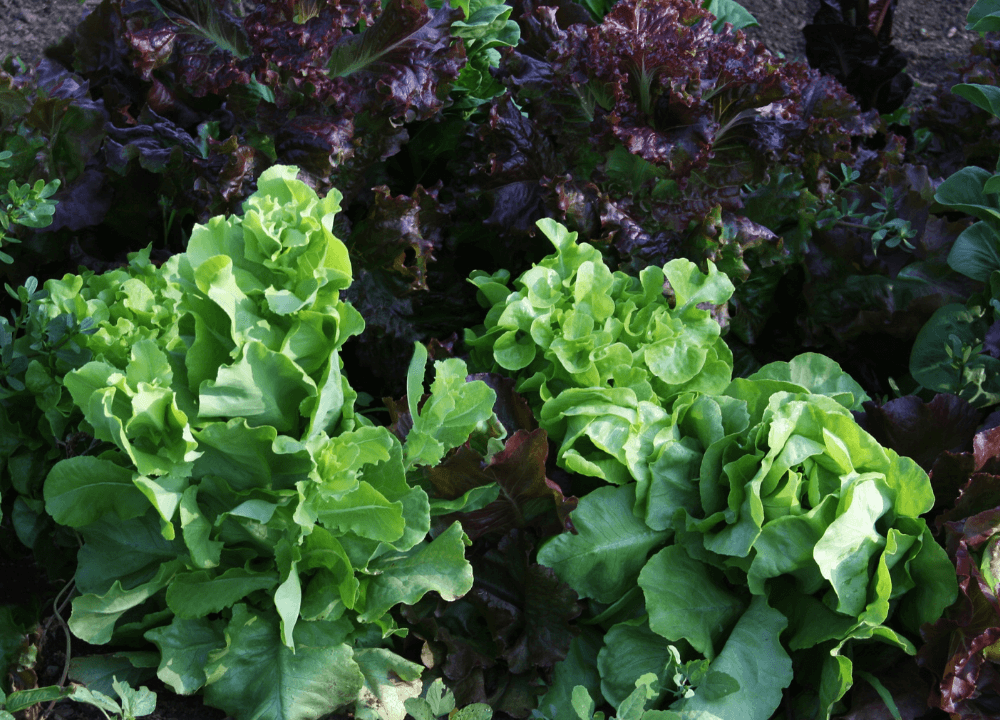
Source: https://www.canva.com/media/MAEJjW5m2tA
2. Tomatoes
Tomatoes are possibly the most popular vegetable grown in veggie gardens today and are the perfect crop for beginners. Tomatoes love warm weather and plenty of sunshine so find a nice sunny spot with lots of rooms to grow and your tomatoes plants will flourish.
Tomato seeds can be directly sown in soil or from seedlings. They can also be grown in hanging baskets or containers. Just make sure you get the appropriate support for their stalks by placing cages around the plants so the stalks can support the weight of the fruit. Give them some water every day for the first few weeks and then every other day after that.
Bonus tip! If you plant basil right next to your tomato plant you’ll naturally repel pests and improve the flavour of the tomatoes.
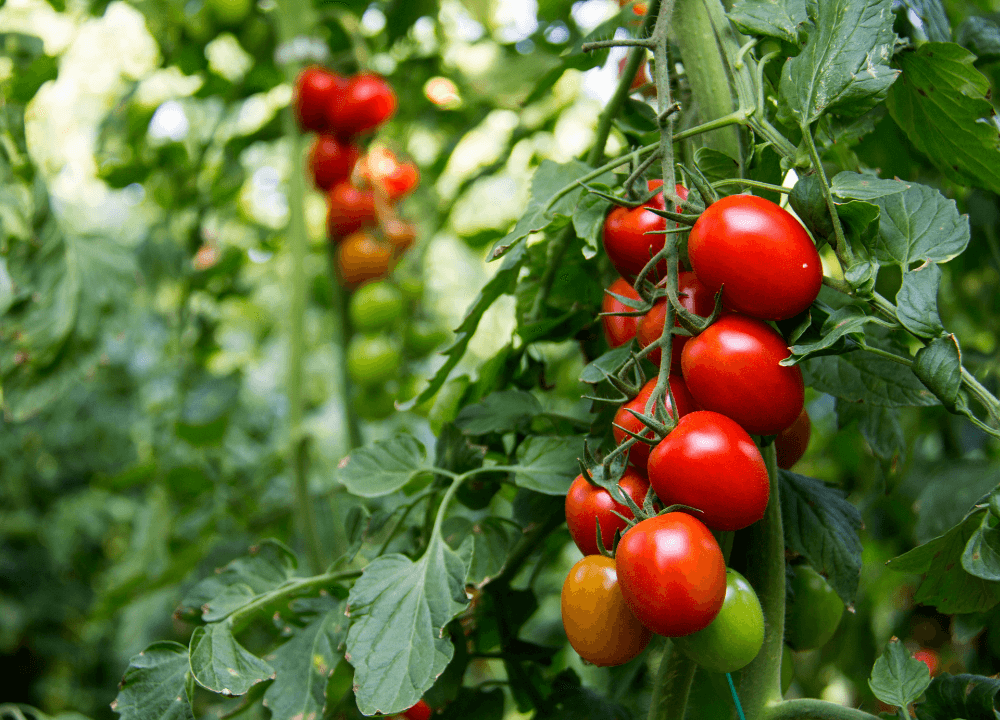
Source: https://www.canva.com/media/MAC4WkHrPxw
3. Cucumbers
Cucumbers are easy to grow as long as they have sunlight, warm temperatures and support for their climbing vines. If you meet all these conditions they will grow in abundance, like weeds! Bush cucumber (as opposed to the vine variety) are best for containers or small spaces and have good disease resistance.
Since cucumber plants are vining, they will take over your garden if you let them grow freely on the ground. It’s a good idea to grow them on a trellis to keep them off the ground.
Due to their high water content, they do need quite a lot of water throughout the growing season. Place them in the sunniest spot in your garden with soil that drains well and water them daily.
You will have more cucumbers then you know what to do with in no time!
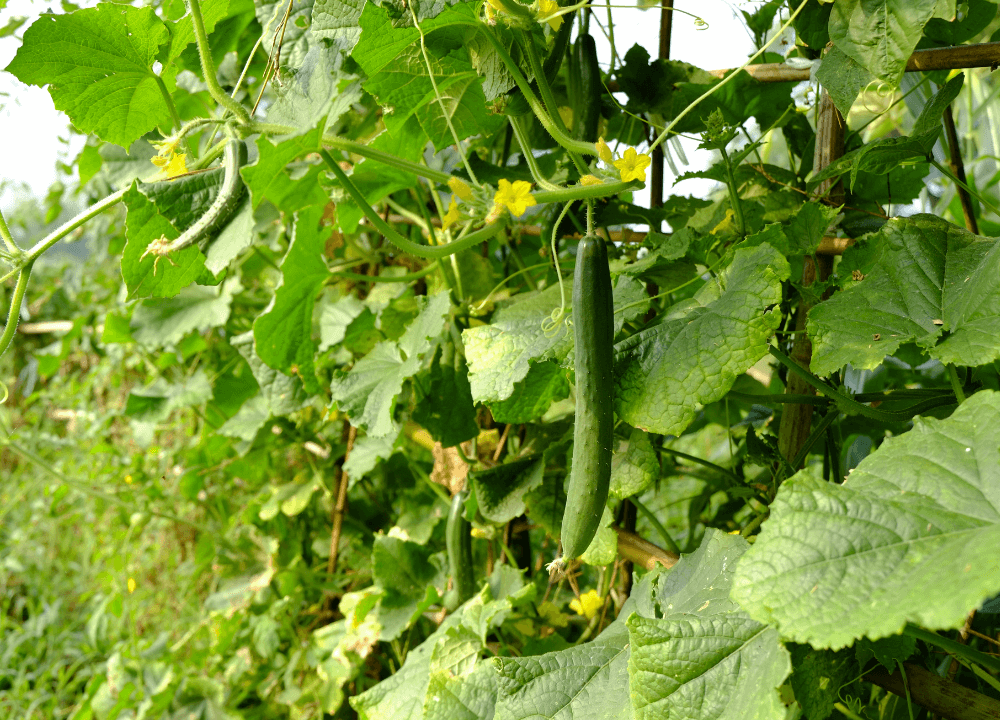
Source: https://www.canva.com/media/MADFRqfEIkA
4. Pumpkins and winter squash
Pumpkins and other types of winter squash are perfect for beginner gardeners. Pumpkins will vine through your garden, like cucumbers, so give them plenty of space. Other types of squash include butternut, buttercup and spaghetti squash.
They are easy to grow, especially in places that have longer summers. Squash are popular in autumn because they have a longer growing season than summer squash. Plant squash seeds in the ground after the last frost date or begin seeds inside 2-4 weeks before the last frost for a quicker harvest. It takes 70-100 days for the squash to become fully ripe.
Squash can be grown on hills or mounds of soil. Water squash slowly and deeply at the root level and make sure that the soil drains well.
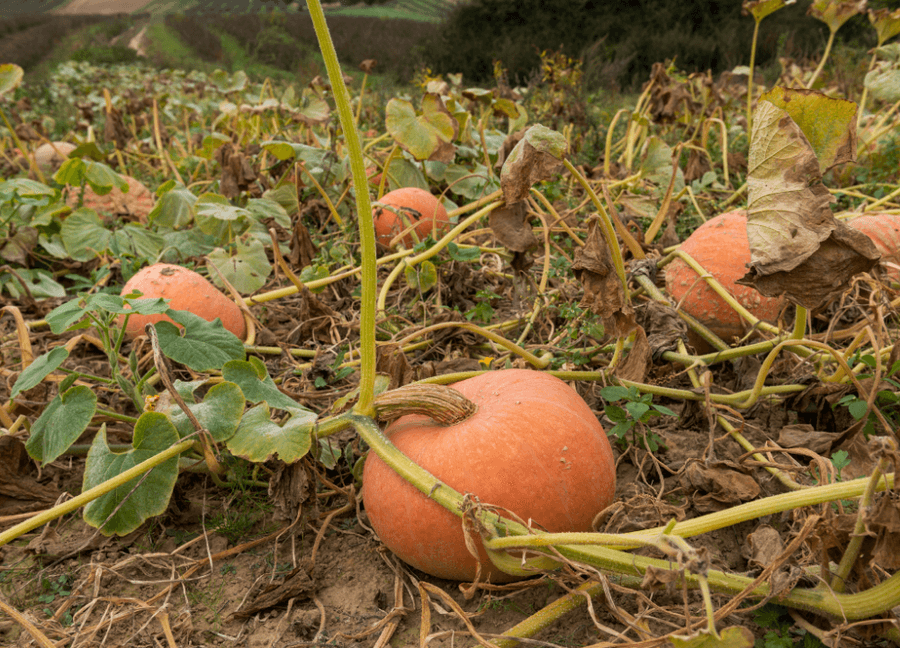
Source: https://www.canva.com/media/MADmzBULEUU
5. Peppers
All types of peppers from capsicum to chilly peppers are fun and relatively easy to grow. There are so many varieties that come in different shapes and colours plus they add so much life to your cooking! Peppers don’t require much space to grow, they are perfect for a small garden or pot and just require support for their vines to climb.
Common pepper varieties for a home garden include capsicum (bell peppers), poblano pepper, cayenne & jalapeno.
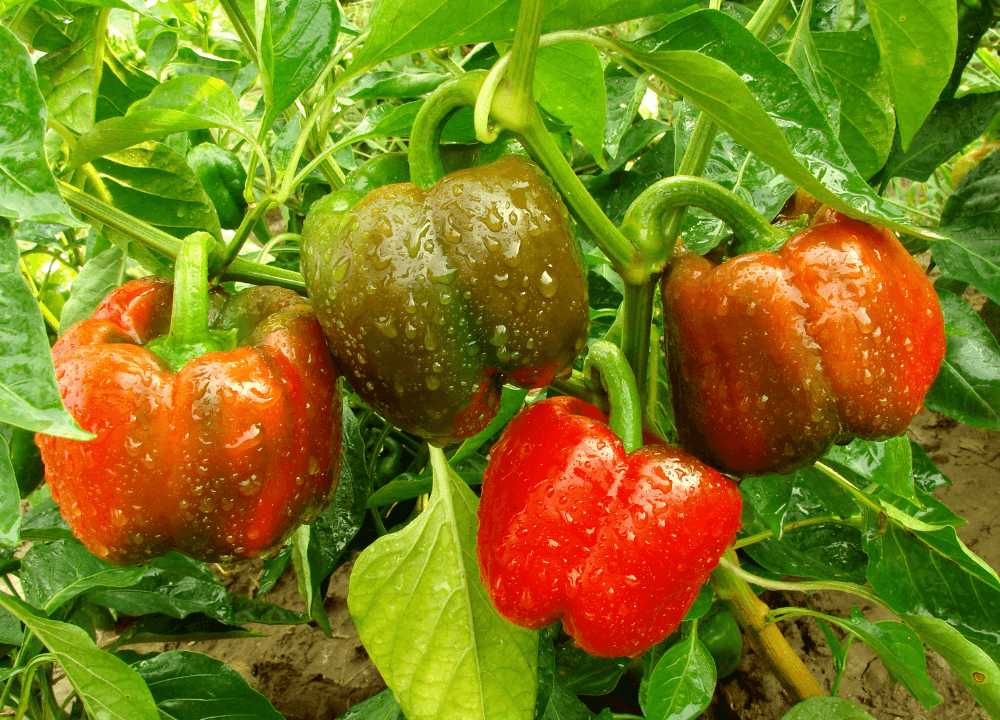
Source: https://www.canva.com/media/MAC8qPb8TIY
6. Carrots
Carrots are another favourite for beginner veggies gardeners! They are relatively easy to grow in the ground, they may just not get very large, especially if you have rocky soil.
Deep soil that drains well is the best, having a raised bed is even better. Carrots are simple and fun to grow and kids love pulling them out of the ground. Carrots prefer being grown in full sun but can tolerate shade. They’re easy to maintain and can be grown in container gardens as long as they are deep enough.
Carrot seeds should be sown directly into the garden for early spring and late fall harvests. They prefer cooler temperatures and loose soil. Spread the seeds in rows about a foot apart to give enough space for the carrots to grow without weeds getting out of hand, which deplete the soil’s nutrients.
Carrots need deep watering at their roots to help them to grow, this can easily be done with a soaker hose every one or two days. They should be ready for harvesting after 6-8 weeks, gently dig up the carrots and marvel at the weird and wonderful shapes that come out!
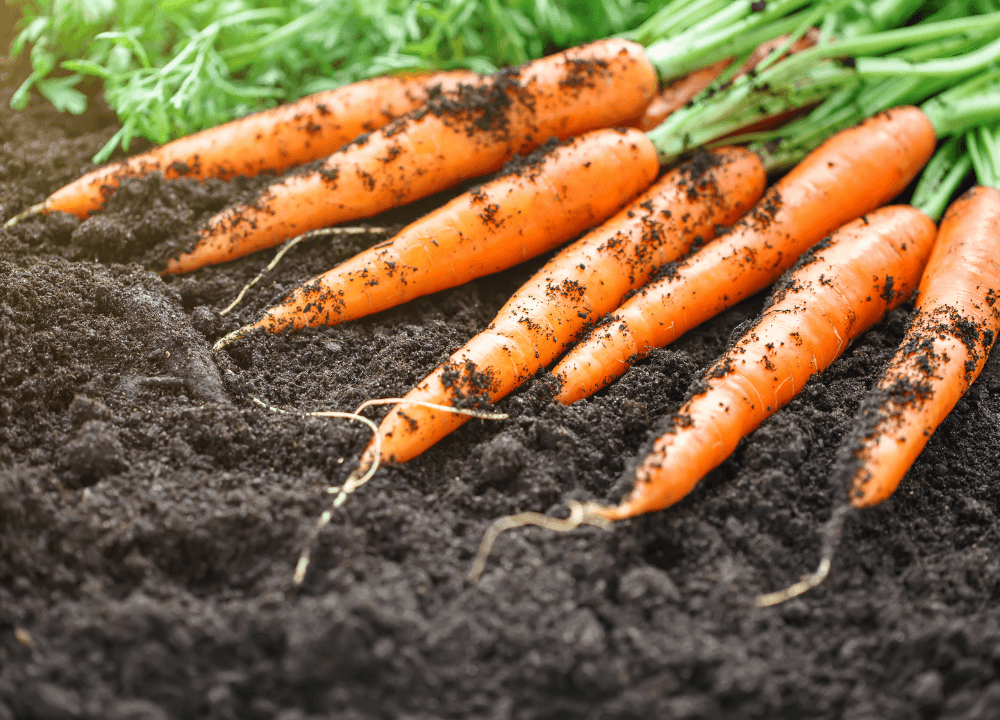
Source: https://www.canva.com/media/MADaure0WNQ
7. Peas
Peas are an exciting crop to grow and are usually the first ones to be harvested in spring and are perfect for beginners. Plant seeds directly into the garden about 4-6 weeks before the last frost date. Dry soil is best for pea plants so growing them in a raised bed or container is best if your soil tends to collect water.
Pea plants need water every other day when you notice the soil is getting dry.
Pea plants are fragile so pull any weeds gently by hand. Be sure to pick pea pods as they ripen as this will encourage more to grow!
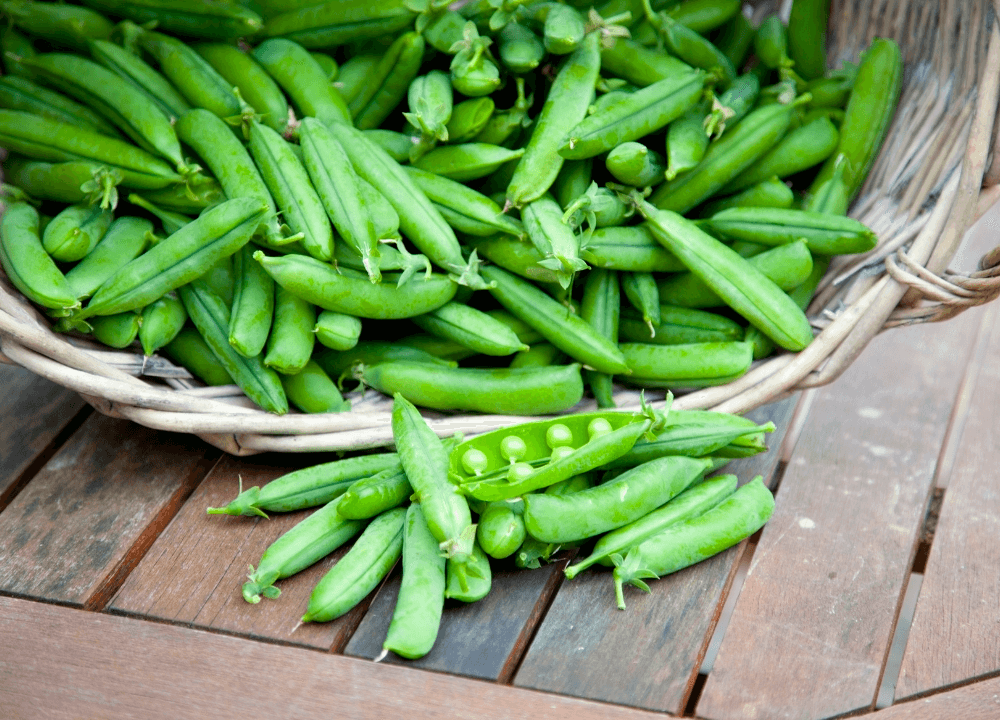
Source: https://www.canva.com/media/MAEEkKA-sEQ
8. Beetroot
Beetroot is another simple vegetable to grow for beginners. They can be harvested within just a few weeks of planting. Boltardy is the most popular and easy to grow variety with good resistance to bolting. It produces medium-sized roots with smooth skin and a dark red colour.
Beetroot likes cooler temperatures and has nutritious leafy greens which are also edible! They will grow fast in loose, well-drained soil and in a sunny spot. Seeds can be sown in early spring and again in late summer. Weed by hand to avoid damaging the delicate root. The beets will be ready, 50 to 70 days after planting.
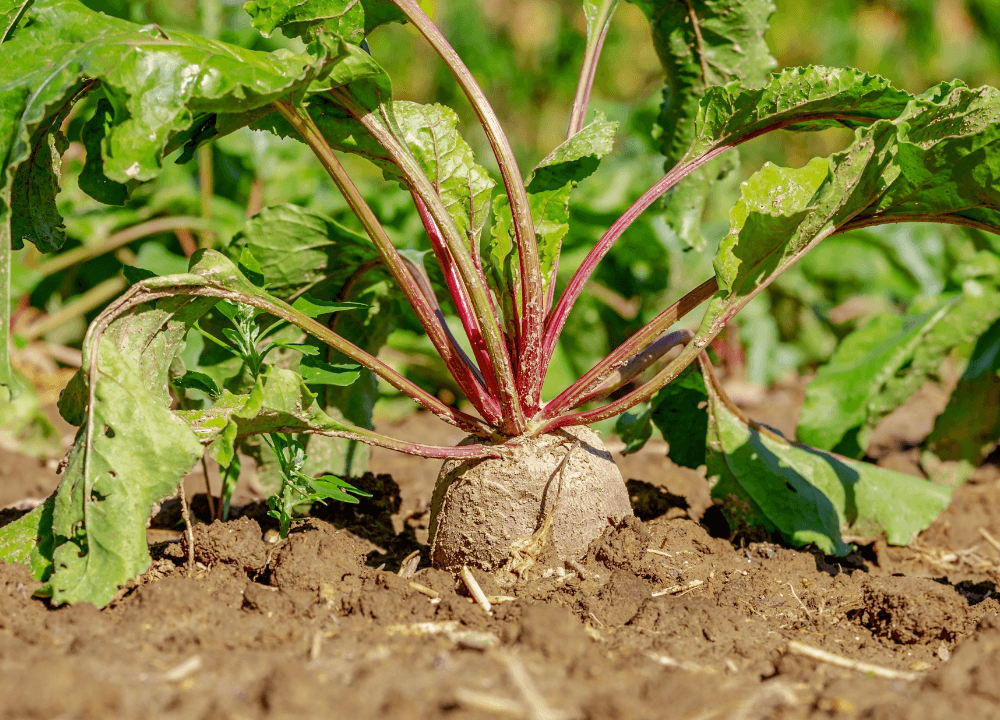
Source: https://www.canva.com/media/MAEJjW5m2tA
9. Onions
Onions are another veggie garden staple that is great for beginners and amazing to have on hand in the garden. Onions have a long growing season and are typically harvested in autumn. Like other root vegetables, they grow best in loose soil that drains well.
You can start onions from either a seed or a starter bulb. Bulbs tend to be easier so this is the best option for beginners! Add compost between your rows of onions to help keep the ground moist yet loose around the bulbs.
When the top shoots of the onions are dry and limp it means they are ready for harvest. Gently loosen the bulbs from the soil to pull them out of the ground. Late summer or early autumn is the best time for harvesting onions to prevent them from rotting in the heat.
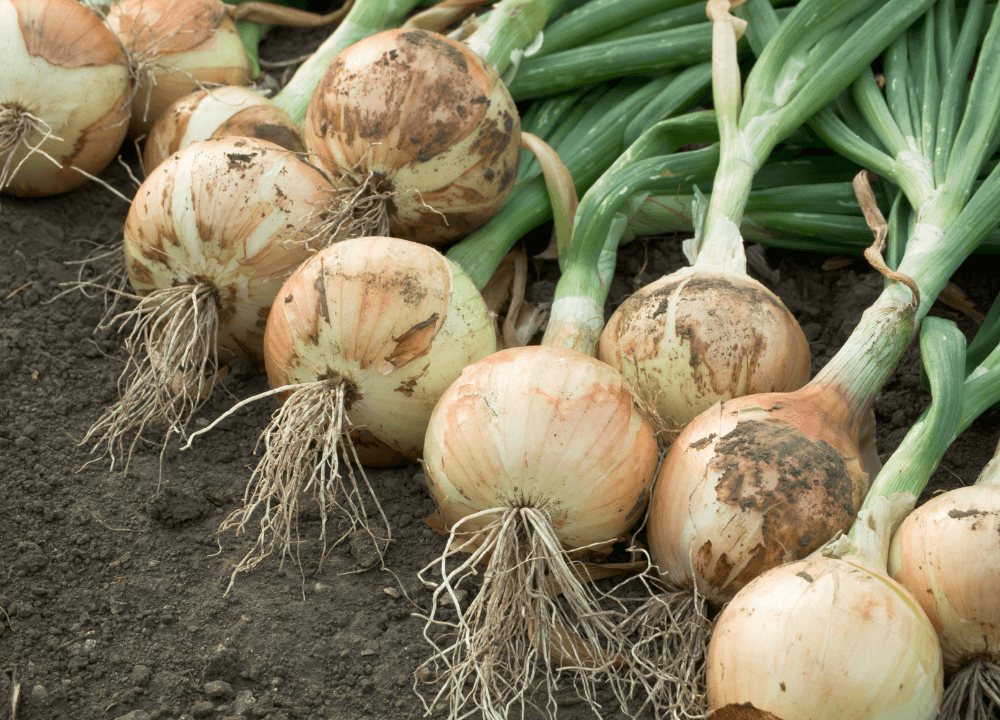
Source: https://www.canva.com/media/MAEEV4XTiLU
10. Green Beans
All kinds of green beans from snap to string are ideal for beginner gardeners. There are hundreds of varieties to choose from! Bush types require less space then the vine types but the vine types tend to be easier to grow.
Beans prefer to have full sun, plenty of water and well-drained soil. Green beans and pole beans are a firm family favourite for the garden, they can be eaten raw straight from the garden! They also grow quickly so are great for autumn or to just fill up your garden. Pole beans will need a trellis or another support system as they grow. Bush beans need more attention to grow successfully.
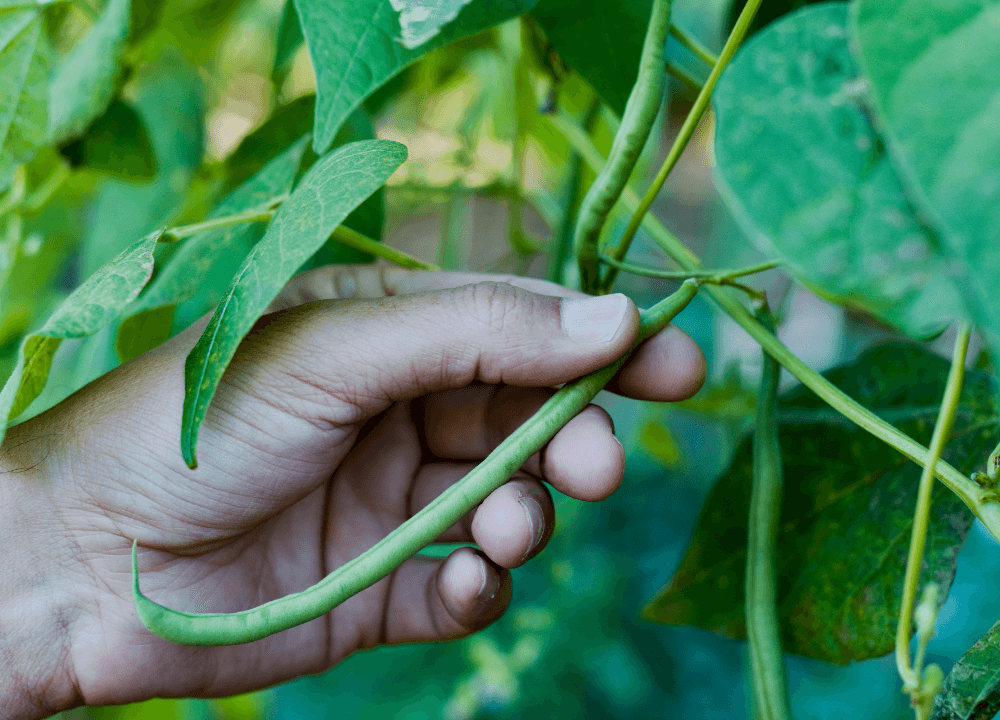
Source: https://www.canva.com/media/MAC5umN49H8
11. Zucchini
Zucchini is an amazing summer squash that is perfect for a beginner garden. Once they start growing they can take over your garden and produce an abundance of huge fruit. One or two plants are enough for anyone’s garden. Zucchini flowers are also just as delectable as the squash!
Similar to cucumbers, zucchini are prolific. They can be grown in containers or directly in a mound of soil and they can grow easily from seeds. They need a lot of water and warm soil so it’s best to sow seeds in late summer.
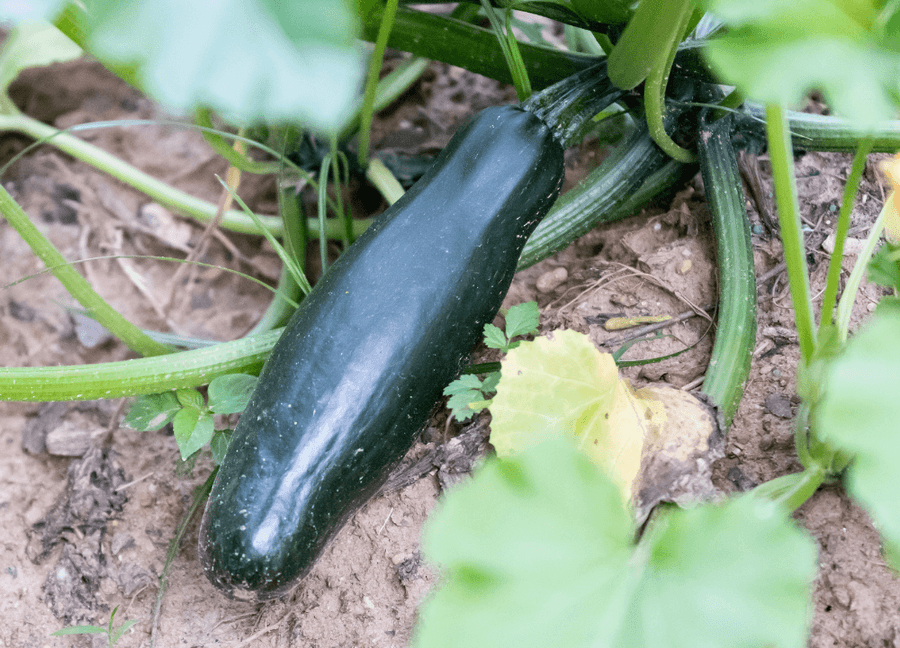
Source: https://www.canva.com/media/MAD-Hy_KFXI
12. Basil
Basil is one of the most delightful herbs to add to your cooking and is easy to grow, making it one of the best herbs for beginners. Sow the seeds directly in containers or in the garden when the soil is warm.
Allow the plant to grow about 8 inches tall before harvesting the leaves and pick them from the bottom up. Once the plant is about a foot tall, start clipping the tops of the plant to encourage the plant to grow out more into a bush.
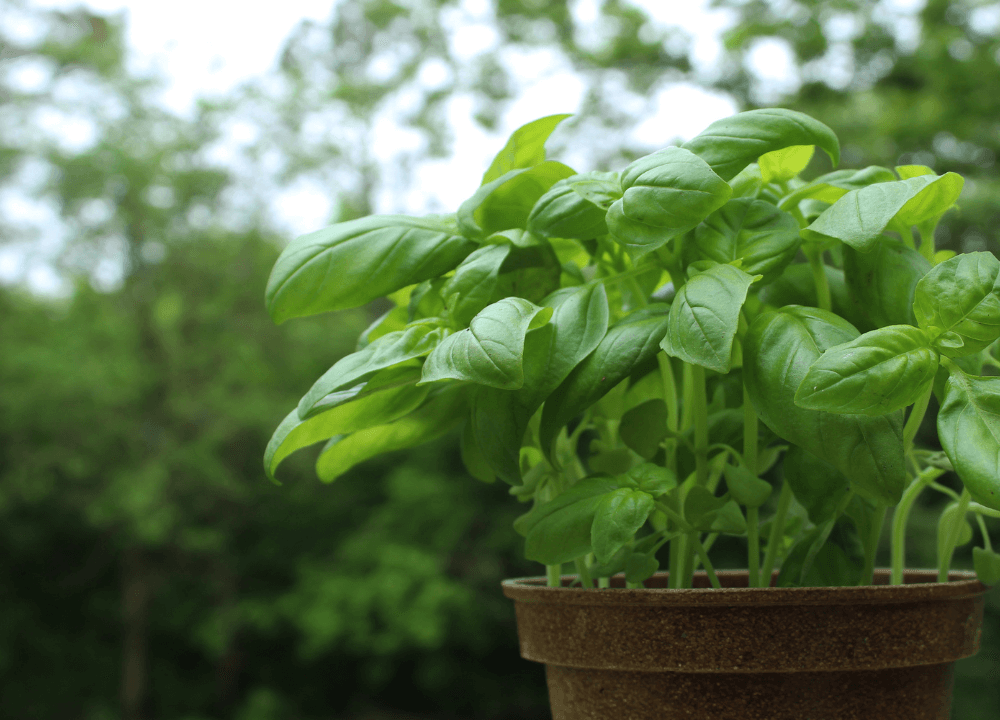
Source: https://www.canva.com/media/MADmrT-lkyM
Remember to start with the basics
When you are just starting out with a veggie garden, stick to the basics. It’s easy to get carried away with all the different types of fruit and veggies you can grow, but it will get overwhelming and you will be more likely to give up!
Start with up to 5 varieties that you know you and your family will love and take your time to learn and master the basics.
Give yourself the time to develop your gardening skills without pressuring yourself to do too much. If you are having difficulty finding the time to maintain or clean the garden, you can always choose to hire a local gardener using ezy peazy. Start small, start with what you like and start with what you know!
Jean francois reviewed Peter
Amy reviewed Ryan
Emma reviewed Ejaj